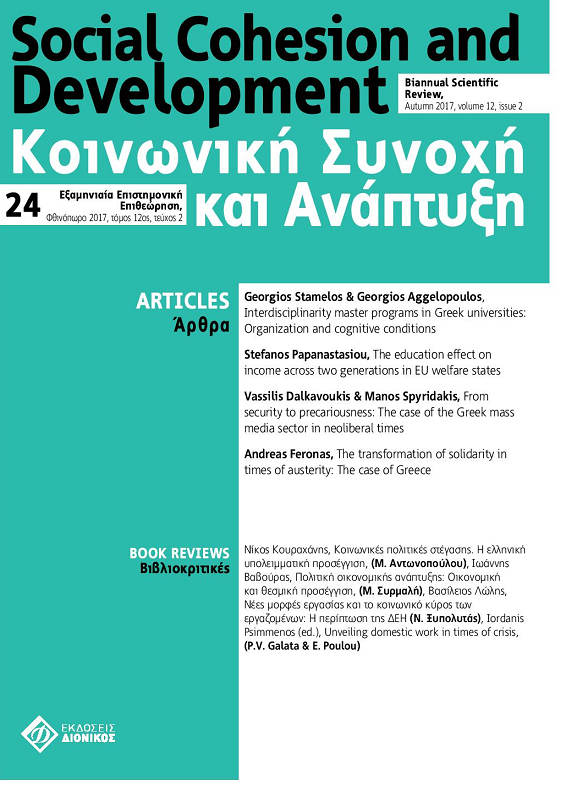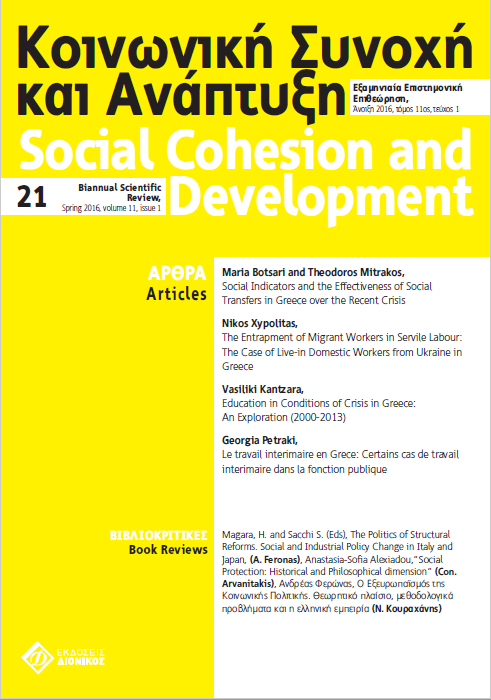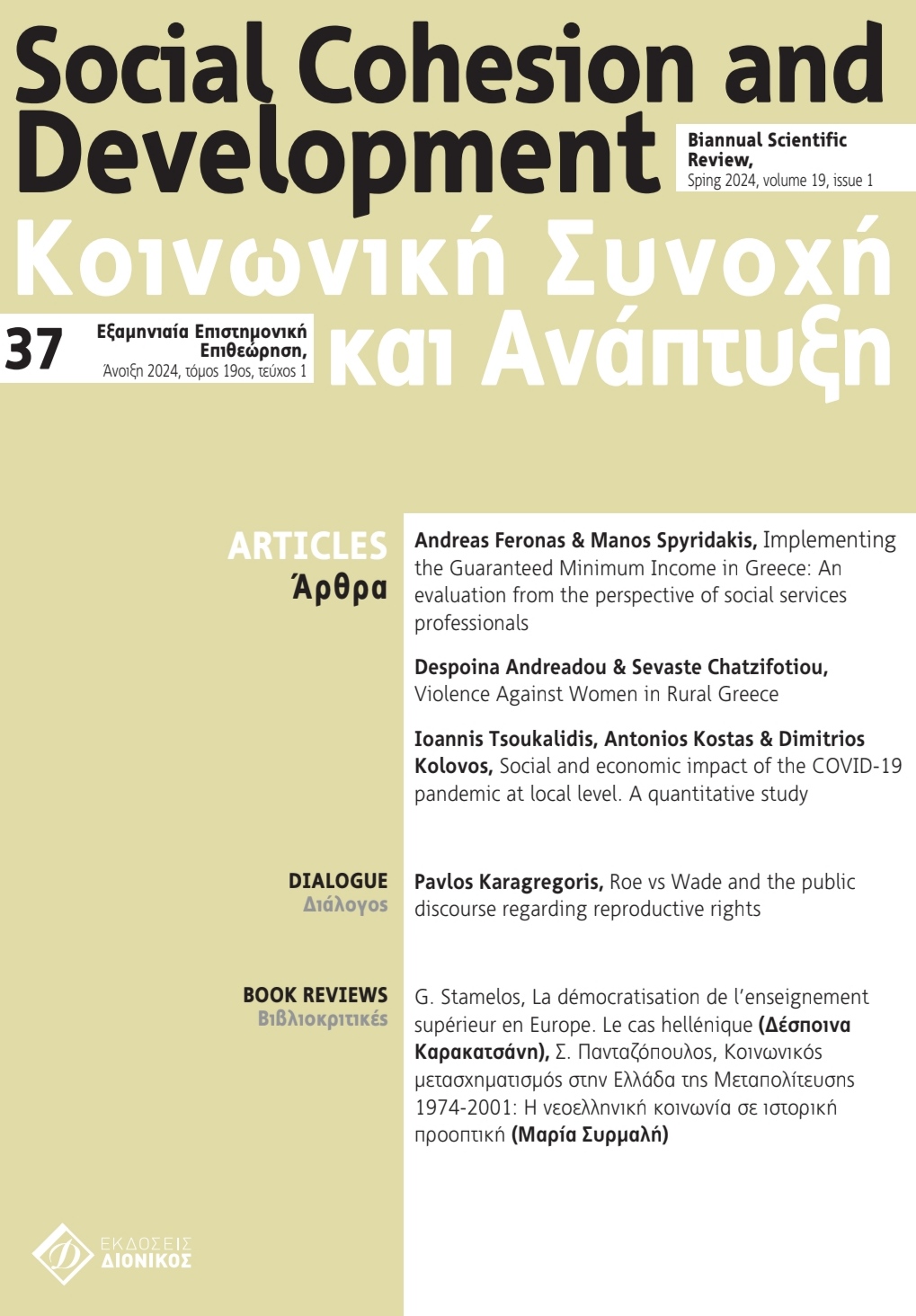The transformation of solidarity in times of austerity: The case of Greece

Abstract
The severe economic crisis that has surfaced in Greece over the last eight years, not only has resulted to an unprecedented social crisis
but has also challenged long established domestic patterns of solidarity. By defining social solidarity very generally as “the willingness
to share social risks” this paper aims at highlighting two parallel processes of transformation of solidarity in Greece in the context
of the ongoing crisis. First, a process of retrenchment of an already problematic formal welfare state solidarity, largely imposed
by the successive bail out agreements with the Troika. Secondly, the emergence of various forms of informal solidarity, aimed at supporting
the social groups most affected by the crisis. The paper concludes that although the latter has played an important role in offering
immediate relief to those “in need”, is far from being considered, neither as a panacea for solving social problems nor as a substitute
to welfare state solidarity, at a time when the demand for social protection has increased dramatically.
Article Details
- How to Cite
-
Feronas, A. (2018). The transformation of solidarity in times of austerity: The case of Greece. Social Cohesion and Development, 12(2), 129–144. https://doi.org/10.12681/scad.18959
- Issue
- Vol. 12 No. 2 (2017)
- Section
- Articles

This work is licensed under a Creative Commons Attribution-NonCommercial-ShareAlike 4.0 International License.
Authors who publish with this journal agree to the following terms:
- Authors retain copyright and grant the journal right of first publication with the work simultaneously licensed under a Creative Commons Attribution Non-Commercial License that allows others to share the work with an acknowledgement of the work's authorship and initial publication in this journal.
- Authors are able to enter into separate, additional contractual arrangements for the non-exclusive distribution of the journal's published version of the work (e.g. post it to an institutional repository or publish it in a book), with an acknowledgement of its initial publication in this journal.
- Authors are permitted and encouraged to post their work online (preferably in institutional repositories or on their website) prior to and during the submission process, as it can lead to productive exchanges, as well as earlier and greater citation of published work (See The Effect of Open Access).





